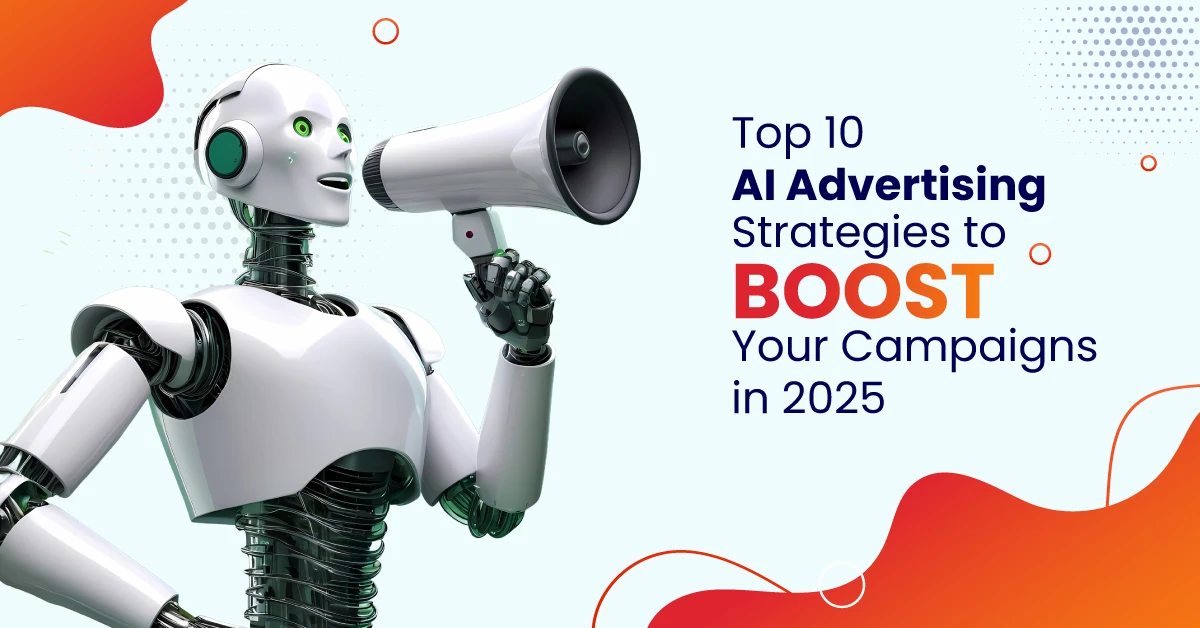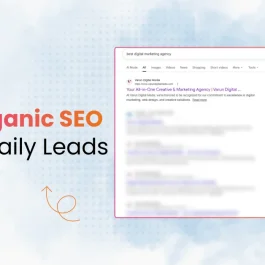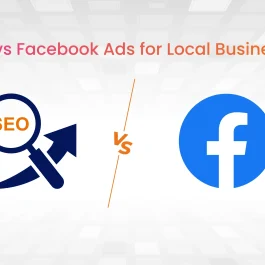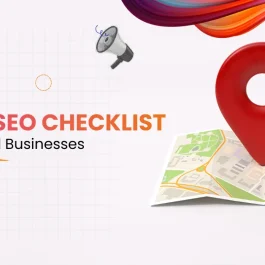5 min read
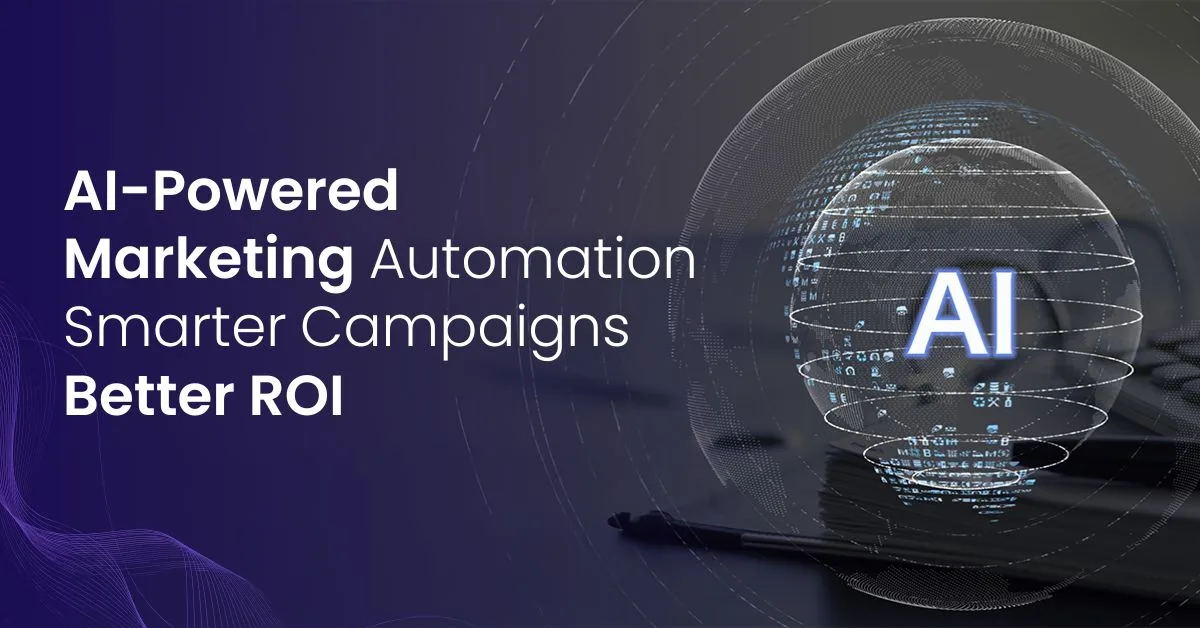
Marketing is evolving faster than ever.
The days of one-size-fits-all campaigns are over.
Today, marketing success depends on how well you understand customer behavior and adapt your message in real time.
That’s where AI-powered marketing automation comes in.
It helps marketing teams plan smarter campaigns, automate routine work, and achieve a higher return on investment (ROI).
According to Statista (2025), the global AI-in-marketing market has reached $51 billion and continues to grow at over 35% annually.
At Varun Digital Media, we’ve seen firsthand how implementing AI marketing automation transforms businesses—helping them personalize their marketing strategies, save time, and boost results across the entire marketing ecosystem.
Table of Contents
What Is AI-Powered Marketing Automation?
Marketing automation uses software to manage repetitive marketing tasks like sending follow-up emails, posting on social media, or running ad campaigns.
When artificial intelligence (AI) joins the process, it becomes intelligent automation.
AI studies customer data, learns from historical data, and uses machine learning to predict outcomes.
It can analyze messages, tone, and context using natural language processing (NLP) to create more personal connections.
Unlike traditional marketing automation, AI doesn’t rely only on fixed rules.
It uses AI algorithms and predictive analytics to improve performance with every campaign.
This creates a transformed marketing system that learns, adapts, and scales.
Why AI Adoption Is Rising
More organizations are incorporating AI into their marketing efforts than ever before.
According to Salesforce’s 2025 State of Marketing Report, 84% of marketing leaders now rely on AI tools and automation systems to guide their marketing campaigns.
Why? Because AI delivers results.
It turns huge volumes of customer interactions into actionable insights, helping brands make data-driven decisions and maximize ROI.
At Varun Digital Media, clients who implemented AI-driven marketing strategies saw up to 40% higher engagement, 25% more qualified leads, and stronger operational efficiency within months.
Every dollar invested brings better targeting, improved personalization, and faster growth.
How AI Works in Modern Marketing
AI collects data from websites, emails, and social media posts.
It analyzes patterns in consumer behavior, identifies market trends, and predicts future outcomes with predictive insights.
For example, if a visitor views products but doesn’t buy, AI can send a follow-up email, chatbot prompt, or ad reminder automatically.
It uses intelligent automation across the entire marketing ecosystem—from email and paid ads to chatbots and retargeting.
AI also connects with supply chain operations to adjust promotions based on product availability.
This ensures that marketing campaigns stay relevant, timely, and profitable.
Smarter Campaigns Through AI
AI helps you design hyper-targeted campaigns that connect with your audience on a deeper level.
It uses data analysis and predictive analytics to understand intent and deliver the right message at the perfect time.
A travel brand can suggest destinations based on purchase history.
A retailer can recommend offers to local customers.
A SaaS company can personalize messages for existing customers and new leads differently.
By leveraging AI, every campaign becomes smarter, more adaptive, and focused on customer intent.
How AI Transforms Marketing Teams
AI is not here to replace humans—it’s here to empower them.
Marketing professionals often spend hours performing repetitive tasks like analyzing reports or segmenting data.
AI handles that instantly, freeing teams to focus on creativity and storytelling.
AI systems process data faster, identify opportunities, and suggest optimizations.
They make decision-making quicker and more accurate.
This shift allows marketing teams to balance art and science—combining human creativity with AI capabilities for greater results.
Personalization and Customer Experience
Customers expect brands to understand them.
AI helps you meet those expectations through personalized marketing campaigns.
By analyzing consumer behavior and customer interactions, AI predicts what each person wants next.
It adjusts tone, message, and timing automatically across emails, SMS, or chat.
This level of personalization enhances customer engagement, builds trust, and improves customer retention.
McKinsey (2025) reports that AI-powered personalization can lift conversions by up to 15%.
Data Analytics and Decision Making
AI brings precision to marketing analytics.
It converts raw data into actionable insights and predictive analytics that show what’s working and what’s not.
This helps brands calculate ROI, compare results, and guide marketing strategy decisions.
With data analytics, marketers can react to emerging trends and optimize faster.
AI technology gives marketing leaders real-time dashboards that visualize marketing success—from lead generation to net profit.
AI in Content Creation and Social Media
Creating content takes time.
Generative AI makes it faster and smarter.
Marketers use AI tools to produce SEO-friendly articles, product descriptions, and ads in minutes.
AI also improves content creation for tone and style consistency.
On social media, it studies engagement, schedules posts, and tracks performance.
Brands using AI-powered tools for posting see 2× more engagement and higher brand reach.
AI ensures consistent messaging across every platform while reducing advertising spend and manual labor.
Data Privacy and Ethics
As brands collect more customer data, protecting it becomes essential.
Data privacy concerns must be addressed through transparency and ethical practices.
AI should comply with privacy laws like GDPR and CCPA.
It must also communicate clearly how customer interactions are tracked and used.
When companies protect data and build trust, they gain loyal customers—and long-term success in a privacy-first world.
Managing Investment Cost and Measuring ROI
Many marketers ask: “Is AI worth the investment cost?”
The answer is yes—when used strategically.
AI saves time, improves targeting, and enhances return on investment.
Businesses typically recover their initial investment within a few months.
It reduces routine tasks, increases precision, and helps maximize ROI through efficient resource allocation.
To see results, brands can calculate ROI by comparing performance before and after automation.
AI’s ability to optimize marketing efforts often leads to higher revenue, lower waste, and improved net profit.
Real Example: AI in Action
A SaaS company wanted to convert free users into paying customers.
They started implementing AI marketing automation to study user activity.
AI tracked sign-ups, feature usage, and session time.
It automatically segmented users and sent personalized messages based on behavior.
AI-powered chatbots engaged inactive users with tips and tutorials, while high-value users received upgrade offers.
Within three months, conversions rose 20%, churn dropped 15%, and the marketing team gained deeper insights into consumer behavior.
Connecting Marketing and Operations
AI doesn’t stop at marketing—it integrates across operations.
It connects data from marketing, sales, and supply chain operations to ensure smooth coordination.
For example, when demand for a product increases, AI alerts both marketing and inventory teams.
This avoids overspending, stockouts, or poor timing.
By connecting the entire marketing ecosystem, AI improves operational efficiency, reduces errors, and increases overall marketing success.
The Future of AI in Marketing
The future of marketing is powered by artificial intelligence.
AI will soon manage campaign management, data analysis, and predictive insights end-to-end.
AI-powered chatbots will handle lead generation and conversations.
AI models will create ads and videos in real time.
Marketers will focus on creativity while automation handles the details.
As AI adoption continues, it will redefine the marketing landscape.
The most successful brands will be those that start early and evolve fast.
How to Start with AI Marketing Automation
Start small and grow steadily.
You don’t need to automate everything at once.
Choose one channel — like email or ads — and test AI-powered marketing automation tools.
Review the performance with marketing analytics.
Once you see results, expand into lead generation, personalization, and retention.
For a detailed plan, visit Varun Digital Media’s blog to learn how to build a data-driven marketing strategy that connects automation, creativity, and performance.
Scale Smarter With AI
Automate campaigns, improve customer reach, and maximize returns through intelligent, data-driven strategy.
Final Thoughts
AI has reshaped the marketing landscape forever.
It helps brands automate marketing efforts, analyze customer behavior, and drive marketing success with precision.
AI-powered marketing automation blends data, creativity, and technology to help teams work smarter and grow faster.
It reduces costs, boosts productivity, and improves customer experience across the board.
At Varun Digital Media, we help brands unlock the power of AI-driven marketing strategies to reach audiences, improve engagement, and achieve measurable growth.
The future of marketing is intelligent.
It’s time to leverage AI to create smarter campaigns, better ROI, and long-term success.
Published: November 6th, 2025
